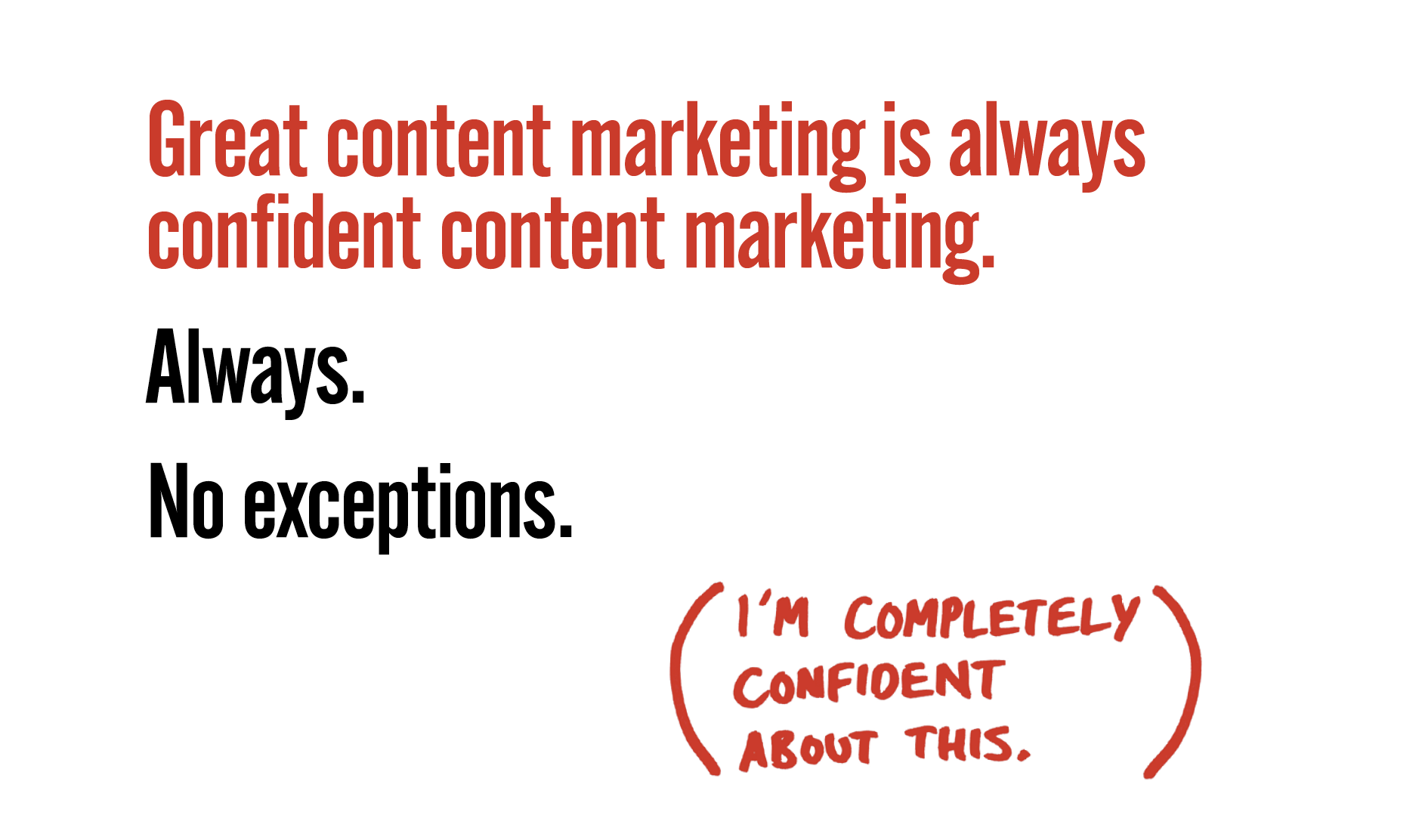Contact us
Tech to Market
Essenstraat 1
5616 LG Eindhoven
The Netherlands
Doug & Rutger on B2B marketing
Do you belong to the lucky ones who were able to obtain a ticket for the upcoming & sold-out edition of Digital Wednesday? Yes? Then you’ll be in for a real treat. For this T-M x Digital Wednesday collaboration, we invited Doug Kessler and his colleague Rutger Frissen from award-winning B2B agency Velocity Partners. Can’t wait to hear what they’ve got to tell us? We were able to sneak in some questions before the big day. You’re welcome.
Q: What do you know about our city and what are your expectations of Digital Wednesday?
A: Rutger – I was raised in Noord-Brabant (Breda) and often visited family in Eindhoven. It’s a wonderful city that I still love to visit when I’m in the Netherlands for its high-tech hub and cutting-edge design culture. Having lived abroad for over 6 years, it does feel special to speak in front of a home crowd of like-minded marketing geeks.
Doug – All I know about Eindhoven is that it’s the home of the famous Digital Wednesday series. Rutger has promised me Stroopwafels.
Q: You have published a lot about the importance of good stakeholder management in marketing. Did you learn the hard way? Please share some juicy story here if you can, so we can learn 🙂
A: Oh, yes. It’s a lesson we should have learned long ago: if you don’t actively manage stakeholders, you’ll spend a lot more time in defense mode later (and/or see your best ideas die too soon). One story: we were proposing a really pretty radical strategy for a client in a hyper-competitive industry where the big players regularly sued each other. Among other things, we were suggesting praising their competitors when praise was due. We knew it would be controversial, so we prepared about ten slides of rationale before getting to the creative. The rationale slides went amazingly well: even the hardest-nosed sales bastard was on board… until the creative recommendations. Then all hell broke loose and we were booed out of the room and pelted with tomatoes and pens and those little laminated cards that have the WiFi password on them. It sucked.
Q: You say companies should be Insanely Honest in their marketing. Can you tell us how you have applied this to your own marketing agency Velocity Partners, as an example?
A: We’re huge believers in this approach (we’ll talk about it on the 30th) and, yes, we use it a lot in Velocity’s own sales and marketing. An example: we won one of our biggest clients ever with a pitch built on, “Three reasons not to choose us.” We were being completely honest: they were real factors that, if the client valued them a lot, should make them choose someone else. It helps to have a firm conviction that Velocity is not right for every company. We feel our job in a pitch is not just to win at all costs but to figure out together if we really can make a difference together.

Q: Some people seem to think of B2B marketing as ‘the boring little brother of’…’. Should ‘we’ let go of that idea, shake it off, or might they (still) be right in your opinion?
A: Well, let’s face it, it used to be true. For many years, marketers didn’t have the clout in B2B companies that they have in consumer brands—and, frankly, they didn’t deserve it! Today, things are changing fast. For one thing, B2B was into content marketing even before B2C. Then digital and marketing automation and analytics have helped turned this into a discipline with real accountability. Now, the bar is as high in B2B as in B2C. And we have the added challenge of having to understand the product and the value chain it competes in. And to figure out longer sales cycles and complex buying teams. For us, it’s way more challenging and exciting than pushing sugar-water, perfume or watches at people using celebrities. Viva B2B!
Q: What should immediately be included in or added to the curriculum of every B2B marketing student, if this would exist in the first place?
A: Every B2B marketing student should learn how to write. In particular, how to write the same story in 5,000, 1,000, 100 and 20 words. It’s not about wordsmithing. It’s about analytical thinking and transforming complex subjects into clear, compelling stories. If empathy were teachable, that would be great too. All great marketing starts with empathy for the target audience. Too much marketing is still boorish, talking at people instead of with them.
Q: It seems you heavily rely on good storytelling in marketing strategies for your clients. What’s your top 3-5 of sources to find inspiration for good stories, as a starting point for marketers with less experience in this field?
A: Everything and anything can be a seed—novels, movies, articles… But some of the great journalism and non-fiction writing offers fantastic lessons for marketers. Michael Lewis, Malcolm Gladwell, John McPhee, and pretty much any New Yorker writer. We do a blog series called “Let’s Steal From…” that analyzes inspiring content. The most recent post is about stealing from the New York Times—they’re doing absolutely amazing work as they transition to a digital-first publisher.
Q: Do you believe in ‘Inbound-only’ marketing? Please explain why yes/no.
A: It’s a great tactic but not many people can or should actually do inbound only. But it’s not exactly clear what inbound really means or how it differs from content marketing. It’s funny, but all of the biggest inbound advocates spent a fortune on outbound tactics like paid social, PPC and email.
Any marketing that’s X-ONLY is probably a bad idea… unless it’s quality-only!
Q: In a lot of (high tech) B2B companies, marketing hasn’t evolved as fast as in other, maybe faster moving, segments. What good examples can people use to convince their management to invest more in or allocate more resources to marketing and communications?
A: Marketing needs to earn its budget. If you do it right, you’ll have the data to prove it’s working. Ideally, that data will track right through to revenue. If management still needs convincing after that… get new management! There are still lots of B2B companies that have achieved success despite very little marketing. Product-driven and sales-driven companies may be the last to recognize the value of marketing—and they may never really get it in their DNA. But it’s our job as marketers to show what we contribute.
Q: In your blogs you talk a lot about the importance of branding your company – knowing who you are, being able to explain to (prospected) customers why they should trust you, your products and services. Although this may sound surprisingly simple, some companies are struggling to ‘get their story’ straight. Countless meetings, half-hearted trade-offs to please the majority of people, etc. What’s your recipe for success?
A: Amen. Part of the problem is ‘drinking the Kool-Aid’: believing that the things you want to be true really are true. Another problem we see a lot is trying to be all things to all people instead of focusing on your ideal prospects. The ones most likely to buy and most likely to be glad they bought. If you keep them firmly in focus, you become willing to alienate less likely buyers–and do marketing that really resonates with ideal prospects. If you really believe in your products, you should be able to figure out why others should believe too. If you’re not entirely convinced yourself… that’s a problem worth fixing.

Q: B2B is all about building trust and personal relationships, right? Any thoughts on how to best match these higher level goals with (rather impersonal) trends like virtual (service) bots, marketing automation and big data lakes in which one could ‘swim’?
A: Good observation. Personal, one-to-one relationships are the ideal but they’re hard to scale up. The art & science of marketing seems to come down to knowing when you can automate and when you need to get personal. The two shouldn’t be in opposition. Big data and analytics can help generate real insights that guide real, authentic interactions. And automated nurture flows can still send out killer emails that are smart, charming, well-written and on-strategy.
Q: As a teaser for the crowd on January 30, what else can they expect to learn from your talk?
A: The core ideas that drive today’s B2B marketing are pretty well known now. We’d like to share some things that are less obvious, little discussed and under-practiced. But we hope it’s kind of fun too. We love this stuff and love sharing ideas with like-minded marketers. Can’t wait!
The original interview content has been published on marketingfacts, you can read the interview in Dutch here.